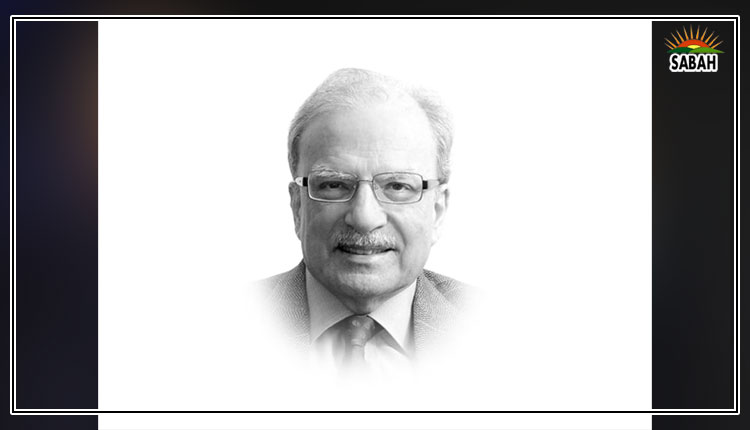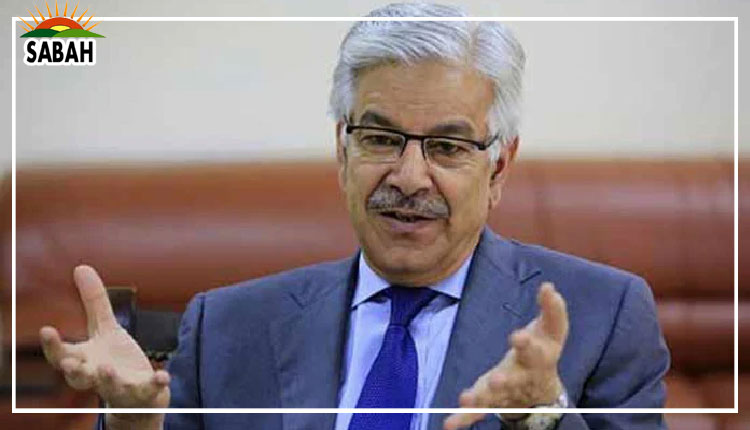Existential threat…Javid Husain
As the country gears up for the general elections in February, formidable internal and external challenges await the new government to be voted into power.
Internally, besides the restoration of badly needed political stability in the country through the formation of a government with a convincing majority in the National Assembly, policymakers will have to carry out far-reaching and possibly painful structural reforms to put the country on the fast track to economic progress and prosperity.
A strong and stable government indeed is an indispensable condition for coming to grips with the urgent task of overcoming the serious economic problems confronting the nation.
On the external front, the challenges are no less daunting. The world is undergoing radical transformation propelled by the emergence of a multi-polar world, growing US-China rivalry, increasing resort to power politics by world powers, diminished importance of the UN and international law in major strategic issues of peace and security, shifting alliances to enable states to adjust to changes in power balances, primacy of economic power, the rapid pace of scientific and technological revolution, climate change, and the tension between globalization and nationalism.
These developments at the global level have their inevitable repercussions on the geopolitical scenarios at the regional levels. South Asia, which has its own power dynamics, cannot remain immune from the forces that are transforming the globe. The growing Indo-US strategic partnership both bilaterally and within the framework of Quad to contain China has direct security implications for Pakistan by upsetting the balance of power in South Asia.
Pakistan, therefore, has no choice but to seek closer strategic relations with China besides building up its national power to safeguard its security. While doing so, Pakistan should maintain normal friendly relations and cooperation with the US and Western European countries.
India itself is undergoing a dangerous transformation. Under the leadership of PM Narendra Modi, the BJP is totally committed to Hindutva which aims at transforming India from the secular state of the Nehru era to a country governed by an extremist and virulent form of Hindu nationalism. Under its dispensation, followers of religious minorities, especially Muslims, are being denied their basic human rights to live in accordance with their religious beliefs and cultural practices.
This should not come as a total surprise to serious students of Indian politics and the history of extremist Hindu parties like the BJP and the RSS, a militant Hindu organization, with their common commitment to the ideology of Hindutva.
The implications of this extremist ideology for Muslims and other religious minorities in India can be gauged from the following quotation from the 1938 work of Golwalkar, the second RSS supreme leader, entitled We, or Our Nationhood Defined: The non-Hindu people of Hindustan must either adopt Hindu culture and language, must learn and respect and hold in reverence the Hindu religion, must entertain no idea but of those of glorification of the Hindu race and cultureIn a word, they must cease to be foreigners, or may stay in the country wholly subordinated to the Hindu nation, claiming nothing, deserving no privileges, far less any preferential treatment not even citizens rights.
Similar views have been reiterated by several BJP leaders in their public statements over the past few years, stressing in some cases that the principle of equality of rights enshrined in the Indian constitution does not apply to Indian Muslims. Frequent reports of religious persecution visited upon Indian Muslims further corroborate the deep-seated anti-Muslim biases of Hindus in India enthralled by the ideology of Hindutva.
Ideologically, Islam and Hinduism are widely divergent. The cultural and political divergences between India and Pakistan are likely to grow following the increasing sway of the BJP and Hindutva in the Indian body politic.
The toxic mixture of these divergences, Indias deeply embedded unhappiness over Partition, outstanding Pakistan-India disputes especially the Kashmir dispute, and the Indian hegemonic designs in South Asia and the Indian Ocean regions poses an existential threat to Pakistans security and economic well-being.
Indias hegemonic designs in South Asia and the Indian Ocean region have been extensively documented by international and Indian scholars including Zbigniew Brzezinski in his book Strategic Vision, Henry Kissinger in his outstanding work World Order, and C Raja Mohan in his writings.
The consensus of these scholars is that Indias main strategic goal is to exercise a dominant position in these areas with a veto over the actions of outside powers. As pointed out above, the growing Indo-US strategic partnership aimed at containing China will have an indirect effect of strengthening Indias position in the fulfillment of its hegemonic agenda in the region.
To achieve this strategic goal, India would like to see Pakistan reduced to the status of its satellite state, which is subservient to commands from New Delhi in the management of its security, economic, and external policies. Since Pakistans nuclear deterrent effectively prevents India from realizing its hegemonic designs through military means alone, it is likely to place its reliance on political, economic, and cultural instruments of policy for bringing Pakistan on its knees. A politically unstable, an economically weak, and technologically backward Pakistan would, therefore, perfectly suit Indias hegemonic agenda.
As advised by Kautilya in Arthashastra, which is recognized by Indian policymakers as a serious guide on statecraft, India can be expected to use overt and covert means to weaken Pakistan. Recent developments in Pakistan in the form of acts of terrorism clearly show that this may already be happening. Pakistans leaders would be well advised to beware of Indias dangerous machinations and take necessary counter measures.
In particular, we should stabilize ourselves politically by strengthening the democratic process in the country and assign the highest priority to economic development and scientific and technological advancement in our national plans and budgetary priorities.
As the ongoing tragic events in Gaza and the history of Kashmir and Palestine clearly show, such strategically important issues are settled primarily in accordance with the logic of power rather than by moral and legal considerations alone.
Courtesy The News












